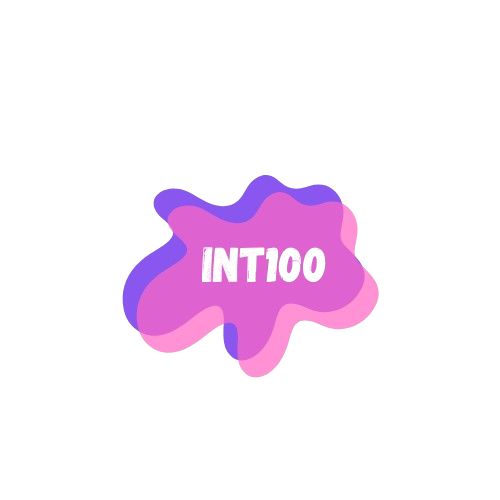In an era dominated by technology and constant distractions, finding time for self-reflection can feel like a luxury. However, one timeless practice—journaling—offers an accessible and powerful way to reconnect with yourself, process your thoughts, and foster personal growth. It has stood the test of time, evolving from ancient record-keeping to a modern tool for mental clarity and self-discovery.
This blog delves into the transformative power of it , its benefits, and how you can harness it as a tool for self-reflection and growth.
What Is Journaling?
At its core, it is the practice of recording your thoughts, emotions, experiences, and ideas. It’s a private space to articulate your inner world without judgment or external influence. It can take various forms, from structured prompts and gratitude lists to free-flowing narratives and artistic expressions.
The beauty of it lies in its flexibility—it’s a practice that can be tailored to fit your personality, goals, and lifestyle.
The Benefits of Journaling
1. Enhances Self-Reflection
It creates a mirror for your thoughts and emotions. By writing down your experiences, you gain insights into your patterns, beliefs, and behaviors. Self-reflection through this helps you:
- Identify triggers and responses.
- Recognize areas for improvement.
- Celebrate personal achievements.
2. Reduces Stress and Anxiety
Writing about your worries can act as a release valve for pent-up emotions. Studies have shown that expressive writing reduces stress levels and helps manage anxiety by:
- Organizing chaotic thoughts.
- Providing a safe outlet for emotions.
- Encouraging problem-solving.
3. Boosts Emotional Intelligence
Understanding your emotions is key to emotional intelligence. It helps you:
- Label and process complex emotions.
- Develop empathy by reflecting on interactions.
- Build stronger relationships through self-awareness.
4. Encourages Goal Setting and Achievement
Documenting your aspirations keeps you accountable. It:
- Clarifies your goals and priorities.
- Tracks progress over time.
- Motivates you to stay focused.
5. Improves Mental Clarity and Focus
JIt declutters your mind, allowing you to:
- Prioritize tasks more effectively.
- Make better decisions.
- Enhance creativity and problem-solving skills.
Types of Journaling
1. Reflective Journaling
Focuses on self-reflection and gaining insights into your life experiences. Use prompts like:
- What am I grateful for today?
- What challenges did I face, and how did I handle them?
- What lessons did I learn this week?
2. Gratitude Journaling
Centers on appreciating the positives in your life. Write about:
- Things you’re thankful for each day.
- Positive interactions or moments.
- Achievements, big or small.
3. Goal-Oriented Journaling
Focuses on setting, tracking, and achieving goals. Try writing about:
- Short- and long-term goals.
- Steps you’ll take to achieve them.
- Milestones and progress updates.
4. Creative Journaling
Encourages artistic expression and free thinking. Include:
- Sketches, doodles, or collages.
- Poems, stories, or song lyrics.
- Vision boards and mind maps.
5. Stream-of-Consciousness Journaling
Involves writing whatever comes to mind without filtering. This method helps:
- Uncover subconscious thoughts.
- Overcome creative blocks.
- Release pent-up emotions.
How to Start Journaling

1. Choose Your Tools
Select a medium that resonates with you:
- Traditional notebooks: Ideal for those who love the tactile experience of pen and paper.
- Digital apps: Great for convenience and organization. Popular options include Evernote, Day One, and Google Docs.
2. Set a Schedule
Consistency is key to reaping the benefits of journaling. Decide on a time that works for you, whether it’s:
- Morning: Set intentions for the day.
- Evening: Reflect on the day’s events.
- Anytime: Use journaling as a tool whenever inspiration strikes.
3. Create a Comfortable Space
Find a quiet, distraction-free environment that allows you to focus. Add personal touches like candles, calming music, or a cozy chair to make the experience enjoyable.
4. Start Small
Begin with just a few sentences if you’re new to journaling. Over time, you’ll develop a natural flow and may find yourself writing more.
5. Use Prompts
If you’re unsure where to start, prompts can provide direction. Examples include:
- What is one thing I’m looking forward to today?
- How am I feeling right now, and why?
- What’s one lesson I learned from a recent challenge?
Overcoming Common Barriers
1. “I Don’t Have Time”
Even a few minutes a day can make a difference. Set a timer for 5-10 minutes and write whatever comes to mind.
2. “I Don’t Know What to Write”
Use prompts or focus on a specific theme, such as gratitude or goals. Remember, there’s no right or wrong way to journal.
3. “I’m Not a Good Writer”
Journaling is for your eyes only. It’s not about perfection; it’s about authenticity and self-expression.
Real-Life Stories: How Journaling Transforms Lives
Story 1: From Overwhelmed to Empowered
Sarah, a busy professional, felt constantly stressed and disorganized. She started journaling for 10 minutes every evening, reflecting on her day and planning for the next. Within weeks, Sarah noticed improved focus and a greater sense of control over her life.
Story 2: Healing Through Writing
James, recovering from a difficult breakup, used journaling to process his emotions. Writing about his feelings helped him gain closure, rediscover his self-worth, and eventually embrace new opportunities.
Story 3: Creative Breakthroughs
Emma, an aspiring writer, struggled with writer’s block. By practicing stream-of-consciousness journaling daily, she unlocked new ideas and regained her passion for storytelling.
The Science Behind Journaling
Numerous studies highlight the psychological and physiological benefits of journaling:
- Stress Reduction: Writing about emotions reduces cortisol levels, the body’s stress hormone.
- Enhanced Immune Function: Expressive writing has been linked to improved immune system responses.
- Improved Cognitive Processing: Journaling organizes thoughts, aiding in problem-solving and decision-making.
Conclusion
Journaling is more than a tool; it’s a gateway to self-discovery, healing, and growth. Whether you’re seeking clarity, managing stress, or striving for personal development, this practice offers a simple yet profound way to reconnect with yourself. Start small, stay consistent, and allow journaling to guide you toward a more intentional and fulfilling life.
Your journey begins with a single word. Grab a pen, open a notebook, and let the power of journaling transform your life.


Leave a Reply